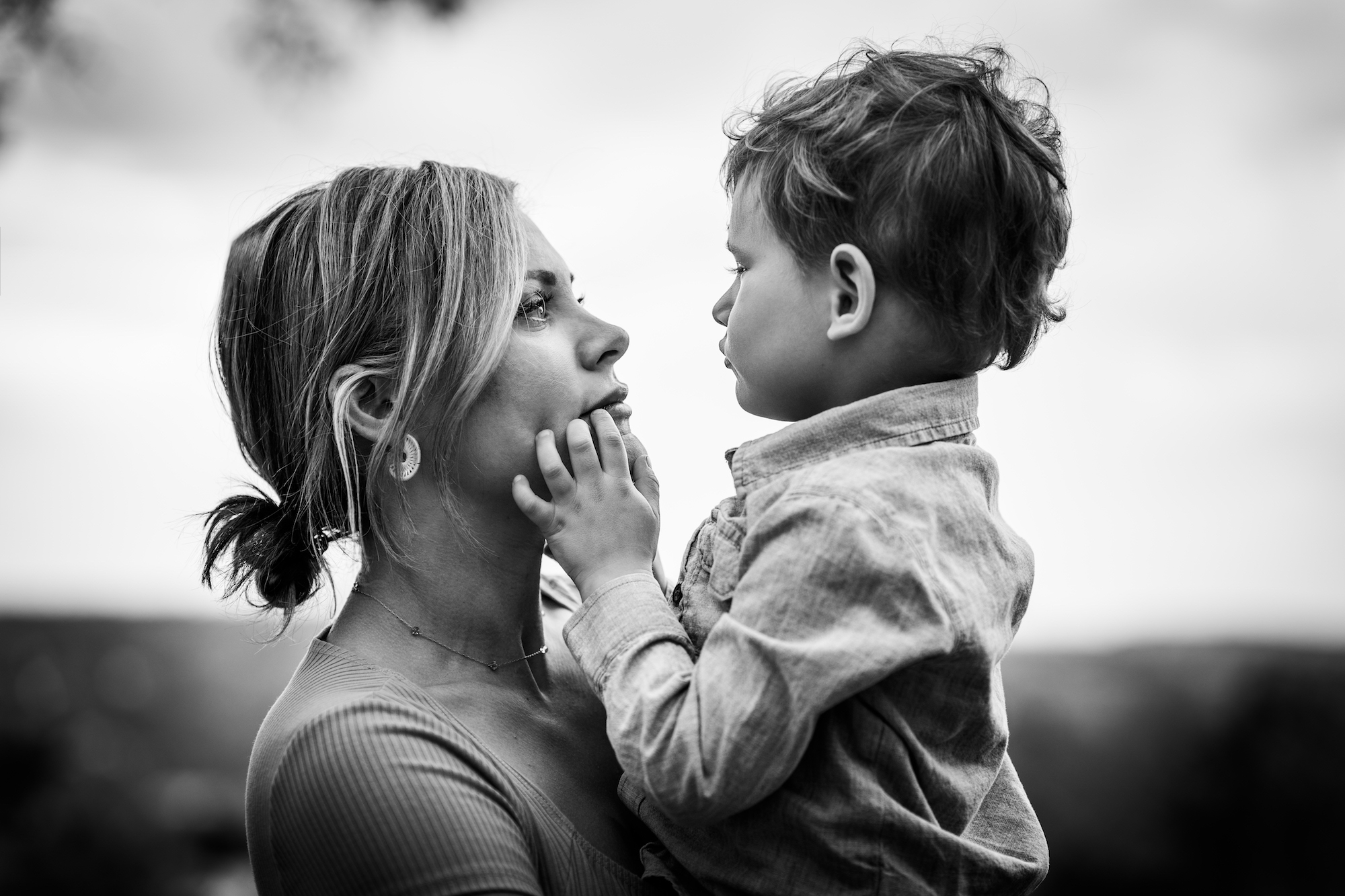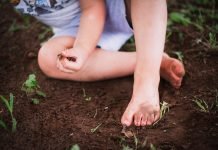I’m still processing the fact that I’ll never get the first year with my daughter, my last baby, that I had pictured.
Compared to the 3 million lives lost around the world and the economic and personal hardships endured, my woes seem downright infinitesimal and not worth mentioning. Whenever someone asks me how my family has weathered the pandemic, I always start with, “We can’t complain.”
And really, we can’t complain. My husband has kept his job; no one we are close to has gotten sick or lost their life. We formed a quarantine bubble with my parents and have been able to see them frequently. There’s no question we are better off than many others, but I still feel a sense of loss.
RELATED READING :: The Pandemic Led Us to Couple’s Therapy & Here’s What We Learned
The loss of many visits from my children’s paternal grandparents and other family members who don’t live locally. The loss of memories and experiences—storytime at the library, Free Forest School meetups, music class. The loss of playdates and opportunities to make friends with moms with kids my daughter’s age. And while my family found joy in much of our time spent together, we’ve lost joy, too, as the pandemic cast a shadow of anxiety, isolation, and uncertainty over everyday life. Vaccines are bringing hope, but the shadow is slow to lift.
To be clear, I’m the one mourning these losses, not my kids. They have had a relatively normal year full of family time and outdoor adventures. My son went back to his nature-based preschool eventually and enjoys outdoor playdates with a few friends. My now 18-month-old is living her best life, oblivious to the weirdness of masks and distancing. I’m grateful that thanks to their age they’ve been so unaffected, but I still grieve for the year that should have been. I’m unsure how to talk about this without seeming ungrateful or out of touch with what real suffering looks like.
Apparently there is a name for this type of grief, as I discovered in a recent New York Times article: disenfranchised grief, or grief not routinely acknowledged or supported by social ritual.
Some examples are grief following the loss of a pet, the death of an ex, or infertility. When loss isn’t recognized by society because it’s seen as not worthy of grief, or it’s stigmatized, people feel like they don’t have a right to grieve. But loss is loss, and everyone deserves to express their grief and have it validated.
I know there are other parents out there mourning their own losses: time with loved ones, milestone birthday parties, family vacations, school dances, graduations, sports tournaments, first days of kindergarten. Pregnant people who lost the experience of seeing their baby’s first ultrasound with their partner by their side. New moms whose families couldn’t meet their newborns, and who lost the support they were counting on to help get them through those extremely challenging early days of parenthood.
Sometimes the knee-jerk reaction to talking about these losses sounds like this: “Be grateful! Focus on the positive!” “It could be so much worse.” “At least you aren’t dealing with [insert terrible thing].”
To me, this doesn’t help. I recognize how my many forms of privilege have afforded me protection and security during the pandemic. But stuffing down my sadness and pretending like the last 13 months has been one big silver lining is not healthy. What’s healthy is acknowledging my feelings, not downplaying them or denying their existence.
The pandemic has been devastating for so many, but parents especially have faced unique challenges and need support and validation. Missed time with grandparents, a cancelled graduation, a closed preschool: these losses may seem unimportant compared to what others have experienced, but they are still losses.
It’s okay—and more than that, it’s necessary—to name your grief, allow yourself to process it, and perhaps even share it with others.
We’ve all felt alone and isolated to various degrees in the pandemic, but we don’t have to feel alone in our feelings of loss. By seeking support and sharing our experiences, we can connect with others at a time when we all need it more than ever.
Photo Credit :: Noelle Westcott Photography










